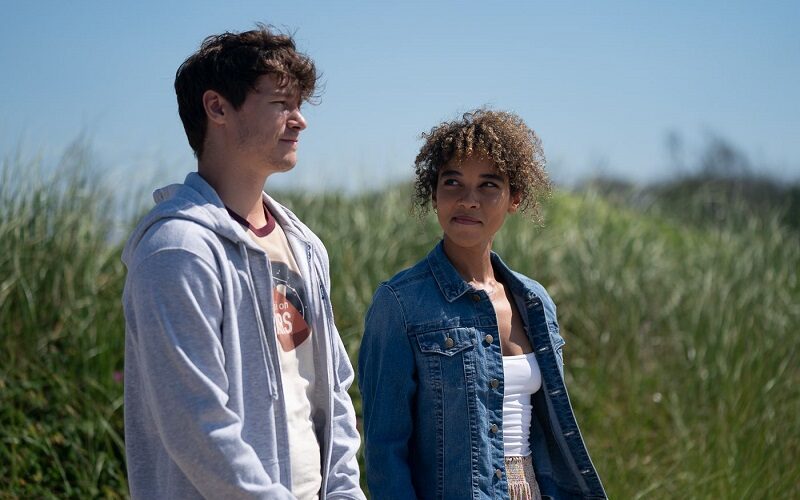Space Oddity (Sedgwick, 2022)
Alex (Kyle Allen) claims to be in training for a privatized expedition to Mars that will cause him, if selected, to leave everyone he knows on earth behind. His family and new girlfriend (Alexandra Shipp) see this as a rejection of them. Why would someone want to walk away from everything and everyone they’ve ever known? They would probably be even more hurt if they believed him. The expedition is probably a fake. After all, why would a legitimate space program take volunteers, much less those with little to no aeronautical or survival experience?
Much of Space Oddity unfolds like a remake of Lars & The Real Girl. Is it more loving to indulge someone’s fantasy than to confront it for what you think it is — an attempt to avoid the pain and suffering that living in the real world induces? And to the extent Space Oddity works, which it does, marginally, it does so because, like the supporting characters in Lars & The Real Girl, the characters approach the delusional character from a place of love rather than scorn or ridicule.
Alex and his family have been devastated by the death of his brother. The film’s central point — that all of us process grief by investing meaning into things (farming, exploring, marriage, kids) that are an amalgamation of fantasy and reality — is hardly subtle. But it is executed with a light hand, and it avoids being overly preachy.
The film is being touted as Kyra Sedwick’s film directorial debut, although the actress does have a handful of television credits to her name. Space Oddity at times feels like a glorified television project, but I don’t mean that as a slight. I just mean that the focus is squarely on the story rather than the visuals (which impacts the budget, I would think) and the arrangement and execution are self-effacing. Kevin Bacon slides into a supporting role, where, television-like, he is given a set of core characteristics and one big reveal scene. He manages to provide nuance to a rather flat character. Carrie Preston is slightly less successful in doing the same for mom, but she’s probably given even less to work with overall.
As someone who experienced the death of a sibling in my youth and remembers watching my parents grieve, I can report that one thing I liked about Space Oddity, is that it varies its tone. The gold standard for such scenarios is Ordinary People, but that movie (and films like Manchester by the Sea) sometimes have so much devastation that there is no room for sadness. By giving us a slightly broader range of emotions, Sedgwick (and writer Rebecca Banner), show us grief in various stages, mediated through the consciousness of people at different stages of their own life. It may be less dramatic than grief in its first waves or in its crippling immediacy, but by giving us a spectrum the film reminds us that there is a possible recovery from rock bottom.

